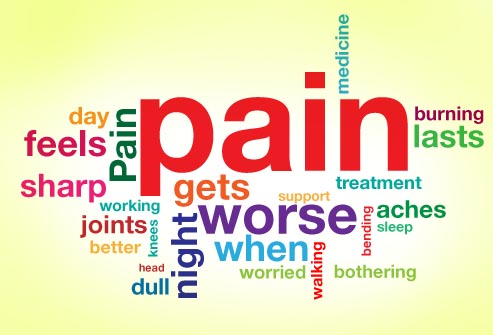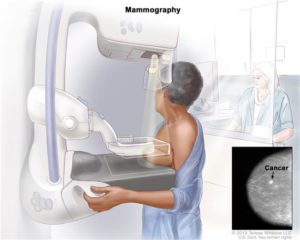
Diagnosed with Cancer? Your two greatest challenges are understanding cancer and understanding possible side effects from chemo and radiation. Knowledge is Power!
Learn about conventional, complementary, and integrative therapies.
Dealing with treatment side effects? Learn about evidence-based therapies to alleviate your symptoms.
Click the orange button to the right to learn more.
- You are here:
- Home »
- Blog »
- side effects ID and prevention »
- Was Mom OverDiagnosed, OverTreated for Breast Cancer???
Was Mom OverDiagnosed, OverTreated for Breast Cancer???

Virtually all older women with breast cancer wind up getting surgery, which poses additional hardships, Dr. Schonberg said. Many are prescribed hormonal therapies that can cause bone pain, fatigue and increase the risk of stroke…
When it came to her health, my mom was practical. Mom was an “ounce of prevention is worth a pound of cure“ sort of thinker. Mom played tennis into her seventies, went for long walks daily until she fell an broke her hip while gardening at the age of 88 and was careful about her diet.
So after a routine mammogram in 2004 when mom’s oncologist told her she had breast cancer, mom did what Dr. Silverman told her to do- lumpectomy, radiation and five years of tamoxifen.
The articles linked and excerpted below, however, make me wonder about my mom’s diagnosis and treatment. Mom’s initial diagnosis of breast cancer was a result of a mammogram at the age of 74. Further, mom developed atrial fibrillation (a-fib) several years following her radiation. Mom developed intestinal problems shortly after she starting taking a blood thinner for her a-fib.
All of the health problems that my mom experienced are common side effects of radiation and oral blood thinners such as Pradaxa that may have resulted from her breast cancer treatment. The real question then, according to the second article below, is if my mom was one of the 33% of patients who were over-diagnosed and over-treated for breast cancer?
The challenge with short, long-term and late-stage side effects is that it is difficult to prove cause and effect. I am a long-term cancer survivor who has lived with and studied cancer since 2004. Studies show that side effects are generally underreported by patients. Mom is the stoic type. Mom definitely underreported her side effects.
I guess I’ll never know for certain if my mom was one of the 33% of people who were overdiagnosed and overtreated for breast cancer. What I do know is that my mom experienced years of pain as a result of her diagnosis. I’ll always wonder though…
Have you been diagnosed with DCIS or early stage breast cancer?
Thank you,
David Emerson
- Cancer Survivor
- Cancer Coach
- Director PeopleBeatingCancer
Recommended Reading:
- Slash Your Breast Cancer Risk of Relapse Now!
- Health Report: Breast Cancer and Chemicals
- Radiation does not Effect Overall Survival in Early Breast Cancer
- Alcohol Intake Increases Risk of Certain types of Breast Cancer
Too Many Older Patients Get Cancer Screenings
““If the screening is not too invasive, why not?” asked her daughter, Dorothy Altemus. “I want her to have the best quality of life possible.”
But a growing chorus of geriatricians, cancer specialists and health system analysts say that for the best quality of life, she’d be better off skipping the screening. Such testing in the nation’s oldest patients is highly unlikely to detect lethal disease. It is also hugely expensive and more likely to harm than help since any follow-up testing and treatment is often invasive.
And yet such screening — and the resulting “overdiagnosis” of cancers in people who are unlikely to benefit — is epidemic in the United States, a result of medical culture, aggressive awareness campaigns and financial incentives to doctors…
And while many cancer screenings are relatively inexpensive — a mammogram averages about $100 — they can set off a cascade of follow-up tests and treatments that cause the total cost of care to soar.
Most spending on unnecessary medical care stems not from rare, big-ticket items, such as heart surgeries, but cheaper services that are performed much too often, according to an October study in Health Affairs…
Among older women, about 70 percent report significant stress at the time of a biopsy, Dr. Schonberg said. Simply lying on a table for a 45-minute biopsy can cause pain for women with significant arthritis, she said.
Virtually all older women with breast cancer wind up getting surgery, which poses additional hardships, Dr. Schonberg said. Many are prescribed hormonal therapies that can cause bone pain, fatigue and increase the risk of stroke…
Third of breast cancer patients treated unnecessarily, study says
“One in three women with breast cancer detected by a mammogram is treated unnecessarily, because screening tests found tumors that are so slow-growing that they’re essentially harmless, according to a Danish study published Monday in Annals of Internal Medicine, which has renewed debate over the value of early detection…
The study raises the uncomfortable possibility that some women who believe their lives were saved by mammograms were actually harmed by cancer screenings that led to surgery, radiation and even chemotherapy that they didn’t need…
Although experts such as Brawley have long discussed the risks posed by “overdiagnosis,” relatively few women who undergo cancer screenings are even aware of the debate…


